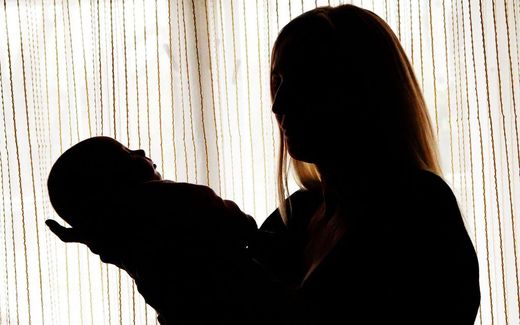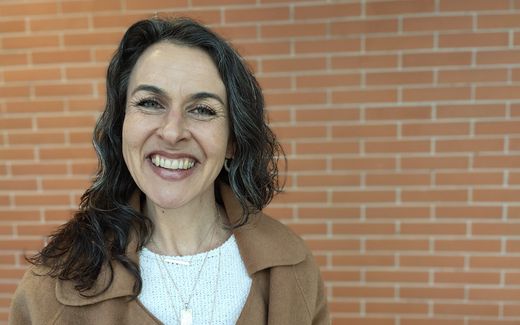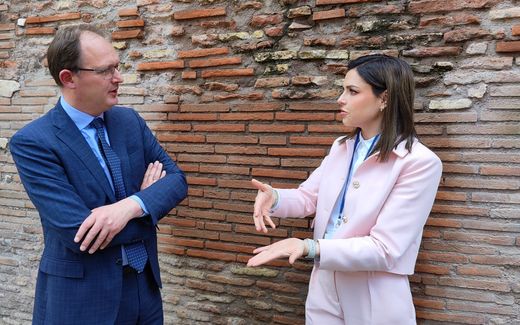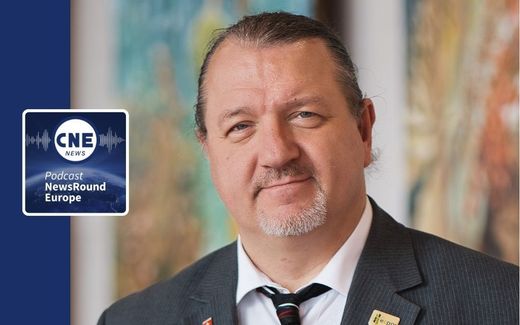How surrogacy gave Olivia a bad start in life

Although she can have everything she wants in material terms, Maurel lacks “a solid psychological foundation and much love.” Photo Getty Images
Western Europe
Olivia Maurel had a difficult start in life. Reason: she was born through surrogacy. A painful childhood and a distressing time as a student convinced her that surrogacy is a harmful practice that should be abolished.
It is the spring of 2023 when Maurel takes a big step: she publishes a video on TikTok in which she rejects surrogacy. She accepts the fact that this might put her at odds with her parents, who received her through a surrogate mother in de US. This short video sets a powerful chain of events in motion.
A year later, Maurel meets the Pope and becomes the face of a global anti-surrogacy movement, the Casablanca Declaration. In Où es-tu, Maman? Le témoignage poignant d'une femme née par GPA (Where Are You, Mom? The moving testimony of a woman born through surrogacy), the 33-year-old Frenchwoman describes her search for her roots and calls for a worldwide ban on surrogacy.
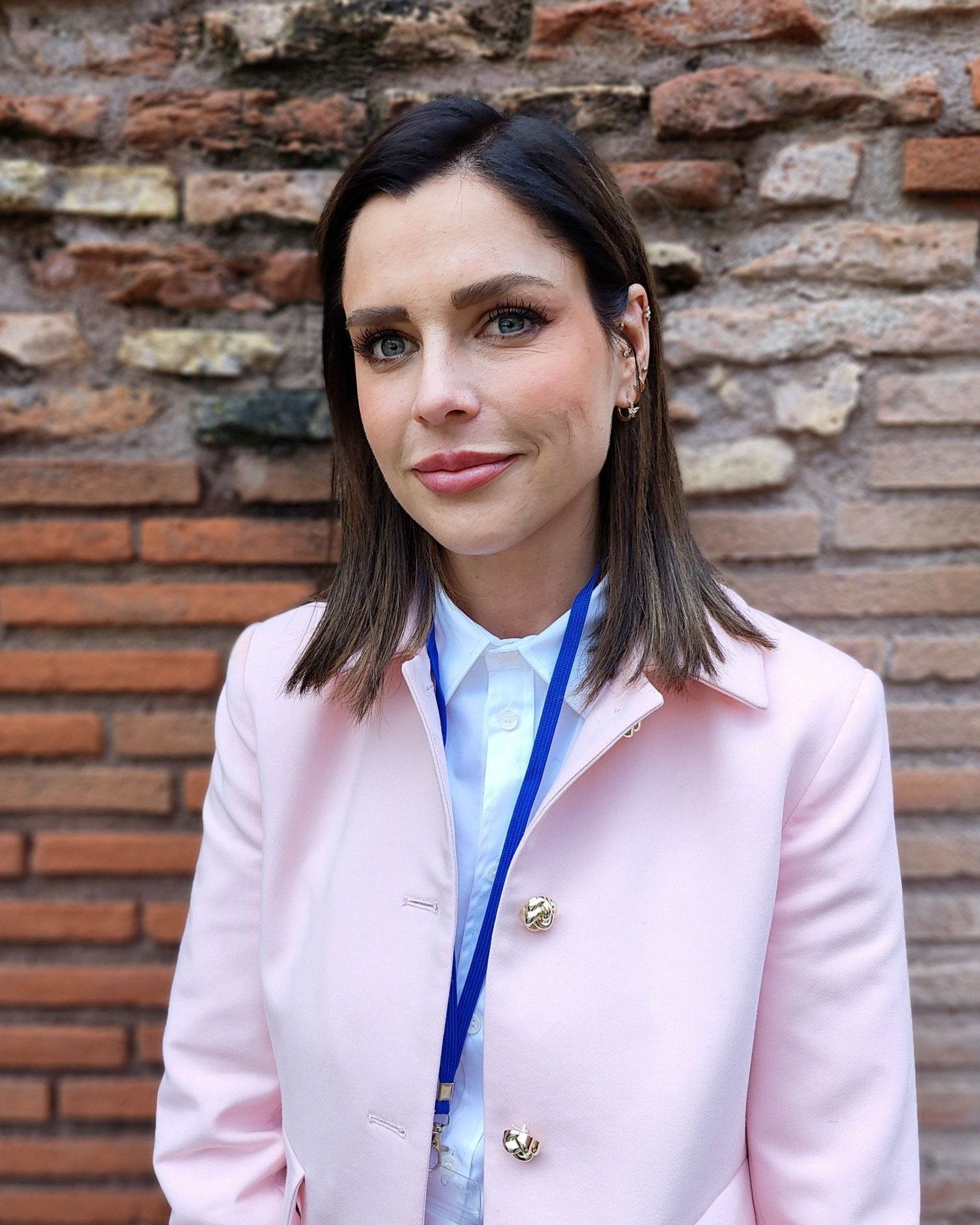
In surrogacy, a woman — the surrogate — carries a child and then gives it up to an individual or couple, whether or not in exchange for payment. This practice is not new, but the debate surrounding surrogacy is growing, partly because it can help homosexual couples have children.
While Italy banned surrogacy abroad last year, the Netherlands is working on a bill to regulate surrogacy. Surrogacy cannot be prevented, and that is why it is better to regulate it properly by law, the Dutch government argues. In other European countries, there are similar debates. A UN expert, however, recently called for the global abolition of surrogacy.
In the public debate on surrogacy, the media mainly focus on the stories of intended parents and their desire for a child. With her book, Maurel — herself a mother now — brings attention to the perspective of the usually silent party: that of the child.
The author writes her book in the first person. Originally published in French in February this year, the book has already been published in Dutch, Slovak and Spanish. While there is not yet an English version available, other languages are on the way.
Pictures
Where Are You, Mom? consists of two parts. In the first part, the author describes her search for her roots. Maurel, who previously shared her story with Christian Network Europe, says she has known since birth that something was not right. “There are no photos of my mother’s pregnancy, and in my first pictures I am five days old.”
As an only child, Maurel grows up with wealthy parents. She spends half the year in the south of France and the other half in West Palm Beach, USA, where, among others, Donald Trump also lives. “An out-of-touch environment corrupted by money,” according to the author.
Although she can have everything she wants in material terms, Maurel lacks “a solid psychological foundation and much love.” Nannies take on a large part of her upbringing. At the same time, Maurel experiences a deep fear of being abandoned by her parents. This painful childhood serves as a prologue to her student years, during which she meets the wrong people and starts using drugs. She also becomes a victim of sexual misconduct.

Many of these traumatic experiences, according to Maurel, are due to the difficult start she had as a newborn; being taken away from her biological mother immediately after birth, she writes, caused a deep wound that left her with a lasting fear of abandonment. It also led to a constant search for affirmation and love.
Maurel acknowledges that her painful experiences do not mean that all children born through surrogacy feel the same way. That is why she also shares the experiences of other children in her book, which makes her story all the more powerful.
In the second part of her book, the author explores the practice of surrogacy: what happens in this world and how? Maurel does not take a neutral stance; she argues, with a multitude of arguments, for a global ban on the practice.
Commodities
The author compares surrogacy to prostitution. In both cases, women are reduced to “commodities” offering “services.” In the case of commercial surrogacy, as with prostitution, it is mainly the intermediaries who make money. Maurel also associates surrogacy with eugenic practices, as it is becoming increasingly possible to select characteristics of the child, such as eye colour and sex. According to Maurel, this turns a child into a “customizable consumer product.”
And why is the child “the great absentee” in the public debate on surrogacy? Maurel argues that surrogacy, particularly in its commercial form, amounts to the sale of a child. This, she says, is in violation of the United Nations Convention on the Rights of the Child, which stipulates, among other things, that a child has the right to know, as far as possible, his or her biological parents, and prohibits the sale or trafficking of children. In practice, however, that right is not self-evident in cases of surrogacy. Nevertheless, many countries still see room to permit surrogacy — or at least not to explicitly prohibit it.
Is regulation, as envisioned by the Dutch government, an option? No, says Maurel. Supporters of regulation see legislation as a way to limit abuse. Maurel, however, argues that surrogacy itself is the abuse, regardless of the legal framework. “You don’t regulate a harmful practice — you abolish it.”
The perspective of the child that Maurel presents in Where Are You, Mom? is unique. Children born through surrogacy inevitably face a conflict of loyalty with their parents if they choose to reject this form of conception.
Maurel’s personal story is therefore not neutral either. It makes the ethical questions surrounding surrogacy tangible in an accessible way.
This book review was based on the Dutch version of “Où es-tu, Maman ? Le témoignage poignant d'une femme née par GPA” (Where Are You, Mom? The moving testimony of a woman born through surrogacy.) The book has also been published in Slovak and Spanish.
Related Articles


